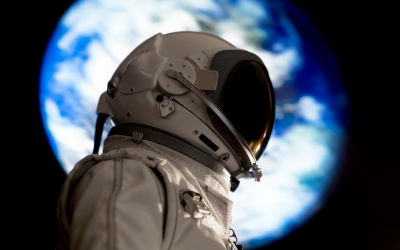Where do you see the law in 25 years: Space Law

This is a question that many legal experts, scientists, and futurists are debating as we enter a new era of technological innovation and exploration. As we know it, the law is based on centuries of human experience, values, and norms. However, how will it adapt to the challenges and opportunities of the 21st century and beyond?
One of the most exciting and uncertain domains of law is space law. Space law is the branch of law that governs the activities of states and private entities in outer space. It originated from a combination of international treaties, national laws, and customary practices.
The five international treaties that form the basis of space law are:
- The Outer Space Treaty (1967) establishes the basic principles of space law, such as the freedom of exploration and use of space, the prohibition of weapons of mass destruction in space, and the non-appropriation of celestial bodies.
- The Rescue Agreement (1968) requires states to assist distressed astronauts and return them to their country of origin.
- The Liability Convention (1972) holds states liable for damage caused by their space objects on Earth or in space.
- The Registration Convention (1975) obliges states to register their space objects with the United Nations.
- The Moon Agreement (1979) regulates the exploration and use of the Moon and other celestial bodies and declares them as the common heritage of humankind.
Moreover, these treaties are needed to address all the issues and challenges in space. Space law is still evolving and faces many gaps and ambiguities.
One of the most critical issues is protecting celestial bodies' environment and cultural heritage from contamination and damage.
Celestial bodies are valuable sources of scientific knowledge, natural resources, and potential sites of historical and cultural significance. For example, the Moon landing sites are part of the human legacy in space.
However, there is no legal framework or mechanism to ensure the preservation and conservation of celestial bodies. The Outer Space Treaty prohibits any harmful interference with the environment of celestial bodies but does not define what constitutes harmful interference or how to prevent it. The Moon Agreement declares that celestial bodies should be used exclusively for peaceful purposes and by international law but has not been ratified by most major space-faring nations.
One of the main challenges is determining who has the authority or responsibility to monitor and enforce the protection of celestial bodies. Global or regional bodies can only oversee or coordinate the activities of celestial bodies. Each state is responsible for authorizing and supervising its nationals in space, but there needs to be a mechanism for ensuring compliance or accountability among states. There is also yet to be an agreement on how to share information or cooperate on matters related to celestial bodies.
Therefore, one of the possible directions for the future of space law is to develop a multilateral treaty or convention that can address this issue specifically. Such a treaty or convention could establish:
- A global or regional space agency or authority that can coordinate and oversee the activities of celestial bodies, similar to the International Civil Aviation Organization or the International Maritime Organization.
- A system of permits and licenses for conducting activities on celestial bodies that could affect their environment or heritage issued by the space agency or authority.
- A mechanism for reporting, monitoring, and verifying compliance with the treaty or convention involving independent experts and inspectors.
- A procedure for resolving disputes and imposing sanctions for violations of the treaty or convention involving a specialized court or tribunal.
A treaty or convention could also promote cooperation and coordination among different actors in space, such as states, corporations, civil society, and individuals. It could also encourage public awareness and education about protecting celestial bodies.
This is just one example of how space law could evolve in 25 years. Of course, many other issues and challenges will require legal innovation and creativity in space. As space science advances and more actors enter space, we must develop new frameworks and mechanisms to regulate space activities. We must also balance the interests and rights of different stakeholders, such as states, corporations, civil society, and individuals.
Some other possible directions for the future of space law are:
- It is creating a common set of principles and standards that can guide the behavior and responsibility of space actors, similar to the Universal Declaration of Human Rights or the Rio Declaration on Environment and Development.
- The adoption of a multilateral treaty or convention that can address specific issues and challenges in space, such as resource extraction, debris removal, or planetary protection.
These are some examples of how space law could evolve in 25 years. Of course, many uncertainties and obstacles could affect the development of space law, such as political conflicts, economic inequalities, ethical dilemmas, or technological disruptions. Therefore, it is essential to engage in dialogue and collaboration among different disciplines, sectors, and regions to shape the future of space law in a way that benefits humanity and preserves the common heritage of humankind.
Reference
United Nations The Office of Outer Space Affairs (2023) Online, Available at: The Outer Space Treaty (unoosa.org) (Accessed on 19 October 2023).

Liz Downie
My name is Elizabeth Downie, and I am currently studying for an LLB Honours Degree at the Open University. I live on the coastline of Prestwick, South Ayrshire, which is a beautiful coastline that goes all the way along the coast to Gourock and Greenock.
My interests include reading, driving, and computing. Through my interest in computing, I acquired a Post Graduate Diploma in Information Technology, and before that, I gained a B.A. Honours in Business Administration.
I have worked in Higher Education as a Lecturer and as a Database Facilitator in NHS.
I also have an interest in Antiques and Collectables as well. Sometimes, I go to Antiques fairs to sell some of my collection.